While essential oils relieve stress, improve our mood and help us sleep better, it’s also possible they affect plants. How we use a diffuser determines whether a plant receives the benefits of essential oils or is suffocated by them.
Diffusers can positively and negatively affect plants depending on which essential oil is used. Directing the diffuser outlet towards the plant, using concentrated essential oils, or oils that contain synthetic components can kill plants. However, diffusing essential oils such as peppermint, thyme, eucalyptus, clove, basil oil, and lavender can encourage plant growth and deter plant pests.
In this article, I explain how diffusers affect plants, the essential oils that are beneficial for plants, and which ones you should avoid.
How Diffusers Affect Plants
Essential oils are natural plant materials that are biodegradable, easy to extract, and don’t stick around in the air, soil or water. They are a complex mixture of ingredients that act together within plants, making them a better ‘pesticide’ than chemical pesticides (and less likely to develop insect resistance).
There is absolutely no chance that using a high-quality diffuser and natural essential oils would harm your plants. However, a mist of essential oils directed toward plants can affect plants negatively.
Benefits of Essential Oils to Plants
Plants can benefit from essential oils in many ways even though they don’t provide any nutritional value to the plant. Certain essential oils:
- Give plants unique scents that attract pollinators.
- Can act as natural pesticides to keep pests at bay.
- Help keep mold away with their antifungal properties.
- Can promote plant growth.
Some essential oils are better than others in terms of their effect on plants. These are the essential oils that have a great positive effect on plants
Best Essential Oils to Diffuse Around Plants
Organic essential oils are the best choice for plants, avoid oils that contain synthetic ingredients where possible.
1. Eucalyptus
Eucalyptus essential oils help plant growth in several ways. They are non-toxic to humans and perfect for pest management. In fact, studies have demonstrated that eucalyptus essential oils protect plants against mold, wood rot, fungi, and mildew. When diffused near plants, eucalyptus essential oils show species-specific toxicity in managing weeds.
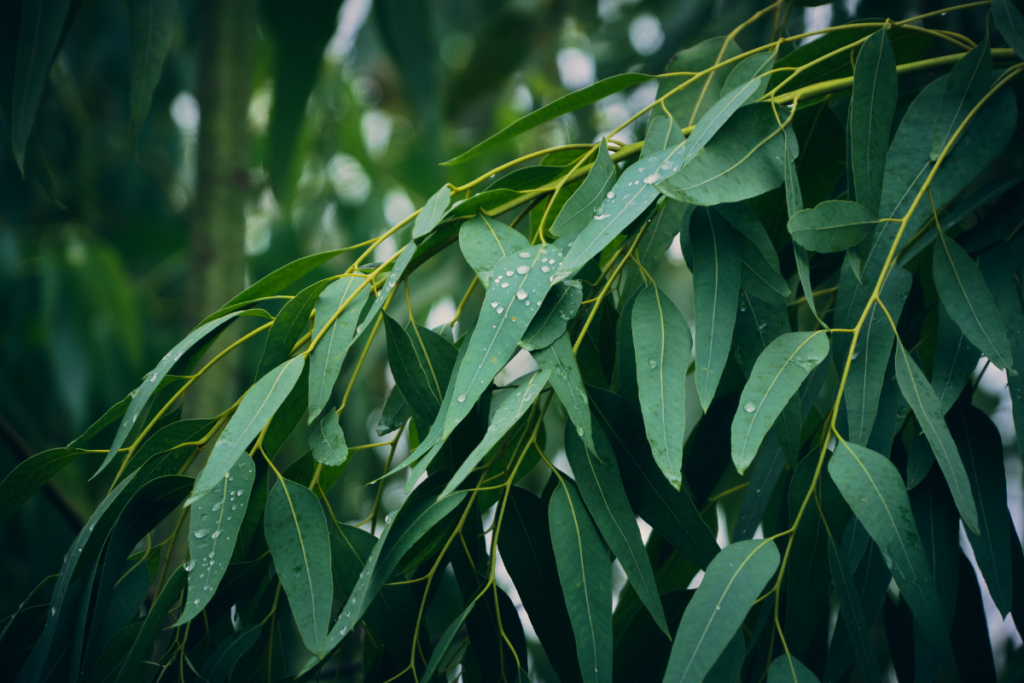
A downside of using eucalyptus essential oil for plants is its characteristics can vary by species, climate, season, and even plant age. Eucalyptus oils are also not efficient at controlling weeds or pests that live in soil because they are insoluble in water.
2. Lavender
Lavender essential oils can encourage the root growth of a plant. Lavender also has antibacterial and antifungal properties.
Research shows it can be effective against weeds even when applied in low concentration. These oils can also act as an insecticide effective against flies, fleas, mosquitos, and spiders.
3. Peppermint
Peppermint essential oils stimulate plant growth. They have a herbicidal action as they prevent seed and early seedling germination of various herbs, so help keep weeds down.
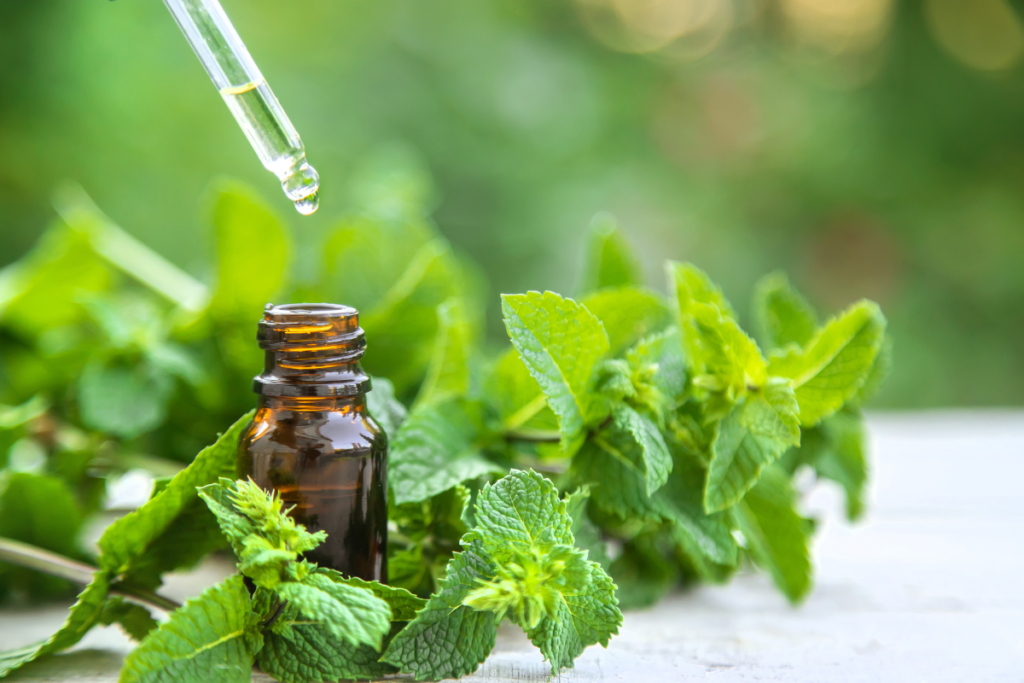
These essential oils have antimicrobial properties and are highly effective in controlling fungus growth. They can also repel insects like flies, mosquito larvae, aphids, spiders, snails, and slugs.
4. Lemongrass
Lemongrass essential oils stimulate plant growth and act as an insect repellent. They are effective antibacterial agents and can protect plants against microbes that cause diseases.
5. Frankincense
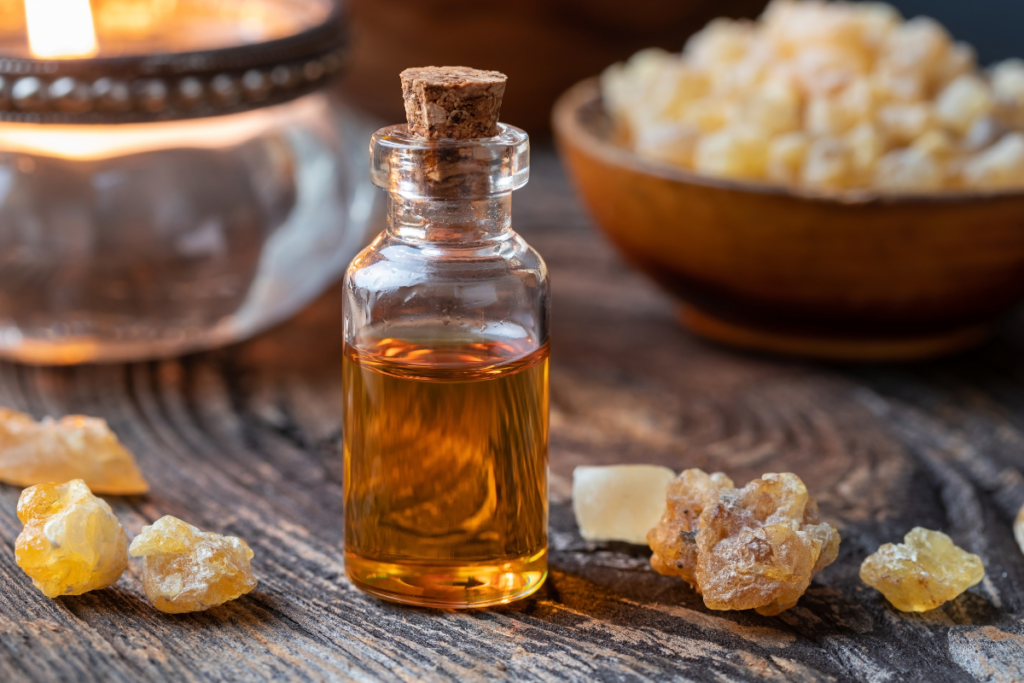
Frankincense essential oil works well with almost all plants. You can also replace frankincense with geranium if you don’t like its smell, as both work in the same way.
6. Lemon
Lemon works as an insect repellant for plants. Studies have shown it’s particularly effective against Vine Mealybug.
7. Basil
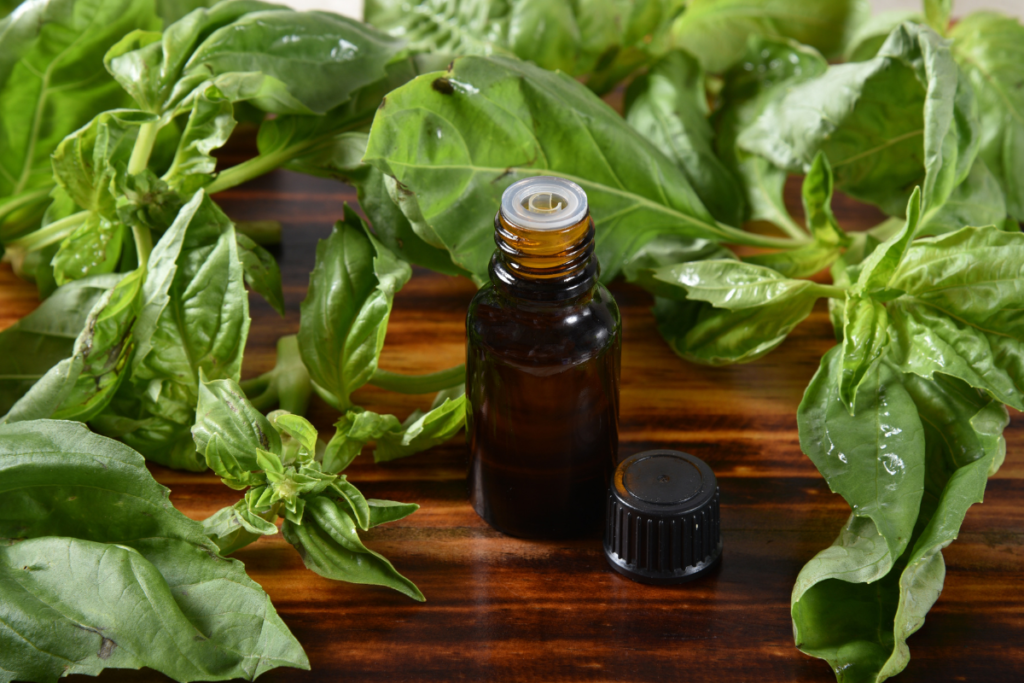
Basil essential oil promotes plant growth and shields them from fungus and insects.
8. Thyme
Thyme essential oils have bactericidal, fungicidal, and insecticidal actions.
9. Rosemary
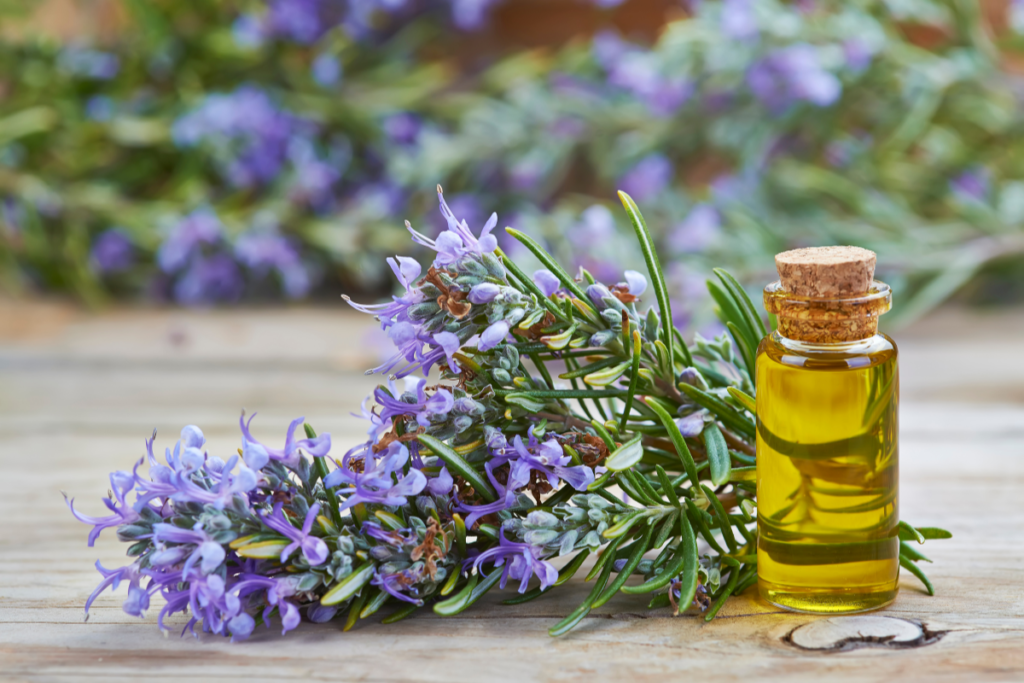
Rosemary is a powerful insecticide that kills pests and attracts pollinators. It’s are also reported to have a herbicidal effect.
10. Tea tree
Tea tree prevents fungal diseases and destroys insects. This non-toxic oil exhibits antimicrobial properties with the potential to protect plants against microbes.
11. Clove
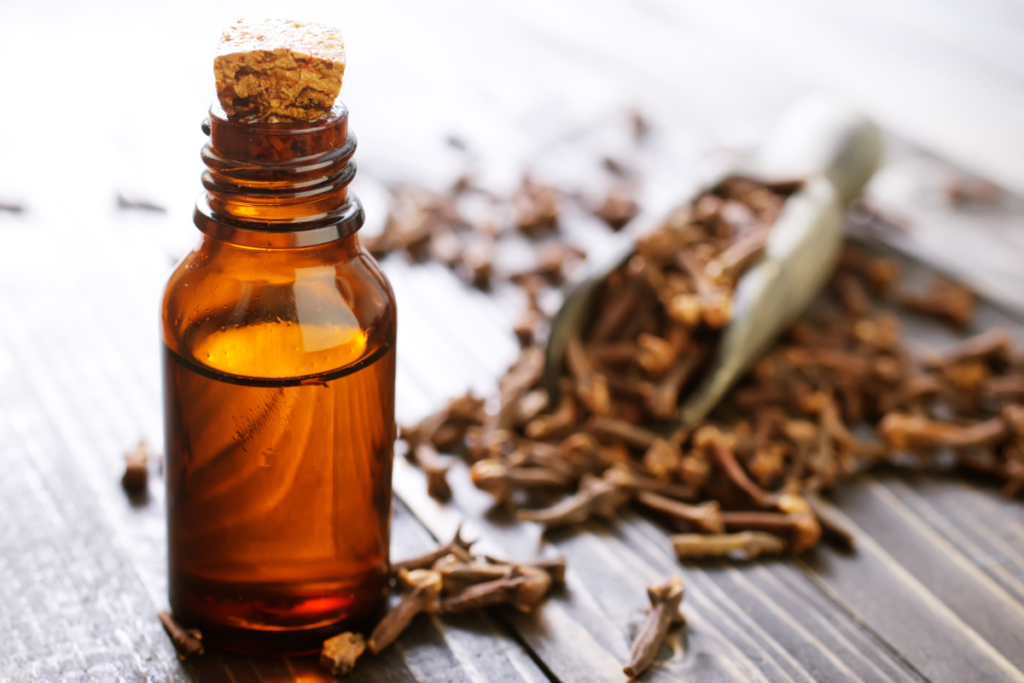
Clove essential oils are highly effective in controlling a number of weeds. They can repel various insects, including aphids, ants, and wasps.
Negative Impacts of Essential Oils on Plants
Applying too much essential oils is adverse for plants because they can build up as a thick layer on their surface, obstructing airflow and sunlight. Without air or sunlight, photosynthesis cannot occur, and plants wilt and die.
Take particular care to avoid using essential oil diffusers near edible plants and vegetables. This is because the scents of essential oils may overpower the sensory qualities of edible plants, fruits and vegetables. If you have to use essential oils, make sure to use the ones that adequately match the type of fruits or vegetable.
Can Diffusing Essential Oils Kill Plants?
Diffusing essential oils will not kill pants unless the essential oils are concentrated, contain synthetic components. The key to safely using essential oils for plants is to keep their scents at a minimum and avoid positioning the diffuser too close to plants in order to prevent direct misting on plant.
Use distilled water to dilute essential oils in appropriate concentrations to harness their maximum benefits, from antifungal to growth stimulating and bioherbicidal properties.
It is better to use one essential oil at a time to avoid damaging the plant unknowingly.
Diffuser as a Humidifier for Plants
A diffuser cannot be used as a humidifier for plants. Of the three types of diffusers, ultrasonic is the only diffuser to disperse water droplet with essential oils. The amount of water dispersed is not enough to influence the relative humidity of a room and will not influence a plant’s moisture requirements.
Using a diffuser as a humidifier is not an option to fulfil the water needs of a plant.
